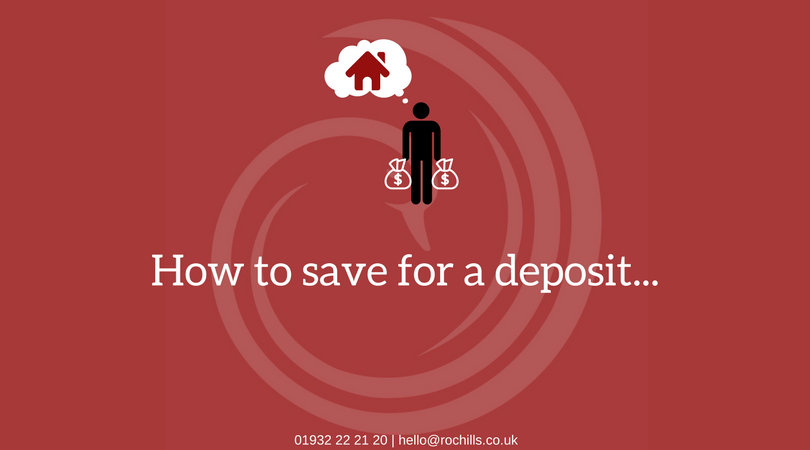Homeownership in the UK has fallen to the lowest level in 25 years and this has a lot to do with the rise in deposits required to secure a mortgage. House prices are around six times the average salary and following the outcry over irresponsible lending banks are demanding hefty deposits these days. So, how do you go about raising that elusive 20%?
Start a budget
Before you start to save for a deposit, make sure you know how much you can afford and therefore how much you need to save.
It’s not a quick win and it involves a lot of sacrifice. But setting a budget and sticking to it is still one of the best ways to make sure you’re not spending more than you’re earning and identify possible savings. Take the time to sit down and work out where exactly your money is going. What can you cut back on and eliminate entirely? Prioritise what you really can’t do without and what you may be able to sacrifice for six months. How much would this save you? Look at your insurance policies and utility bills and use comparison websites to see if you can reduce them.
Make your savings work harder
Savings rates are low so it’s even more important to make sure you fully assess the market for the best deal.
- Use up all of your ISA allowance so you have some tax-free savings.
- Fixed rate saving accounts tend to have good rates than quick access. If you think you can do without touching some or all your savings lock them away for a few years to get the best rates.
- Avoid investments. Investment vehicles may be tempting thanks to the high POTENTIAL returns they advertise but they can often go down, putting you back years on the arduous path to saving a deposit.
Quit renting
We all know the catch-22: you can’t save for your own place because all your money goes into renting. If you want to break this cycle, chances are you’re going to have to compromise. Just 6-12 months of not renting and living on a budget could make a huge difference to your deposit. Here are some options:
Move back in with Mum and Dad
While this won’t be a practical option for everyone, if your parents have the space, you get along and they are happy to have you then you’re really just throwing money away not staying with them for a short time. Before you do move in though, sit down and discuss what financial contribution you will make, how long you’ll stay and any other ground rules they may have.
Move in with friends
Perhaps you have a friend in a similar situation with a spare room. Why don’t you move in and halve both your rents?
House shares
Getting a room in a shared house rather than renting on your own will be cheaper and give you the chance to save up. These houses can be very sociable, but can also try your patience. For one of our members, the best house share she ever did included a cleaner. Everyone split the bills and it meant the bathroom, kitchen and shared areas were always sparkly clean. No more weekends cleaning and because the costs were split they were still able to save.
Share your rental property
If you have a spare room yourself then this is a great way of cutting your rent. You will want to check with your landlord that this is acceptable. There are a number of websites that you can use to advertise your spare room.
The bank of Mum and Dad
More and more people are relying on help from their parents to raise a deposit. And there are also options for those parents who want to help but don’t want to hand over their savings. For example, some lenders may take into account parents taking out an additional charge over their own property.
Keep an eye out for new mortgage products
The mortgage market is constantly changing so make sure you regularly check what’s out there. With lending restrictions much tighter than a few years ago lenders have had to become more innovative with their products to get viable customers through the door. From mates mortgages to 100% mortgages (with help from a wealthy relative) there are plenty of options.
Consider the help from the government
Over the last few years the government has launched several schemes aimed at helping people buy a home. The Help to Buy allows you to buy with just a 5% deposit as does the First Buyer scheme. Home Buy offers the opportunity to buy a share in a new build property and pay subsidised rent on the rest.
For more free advice and updates on the local property market, join the Walton Property Community on Facebook or check out our video advice library on our YouTube channel here.




